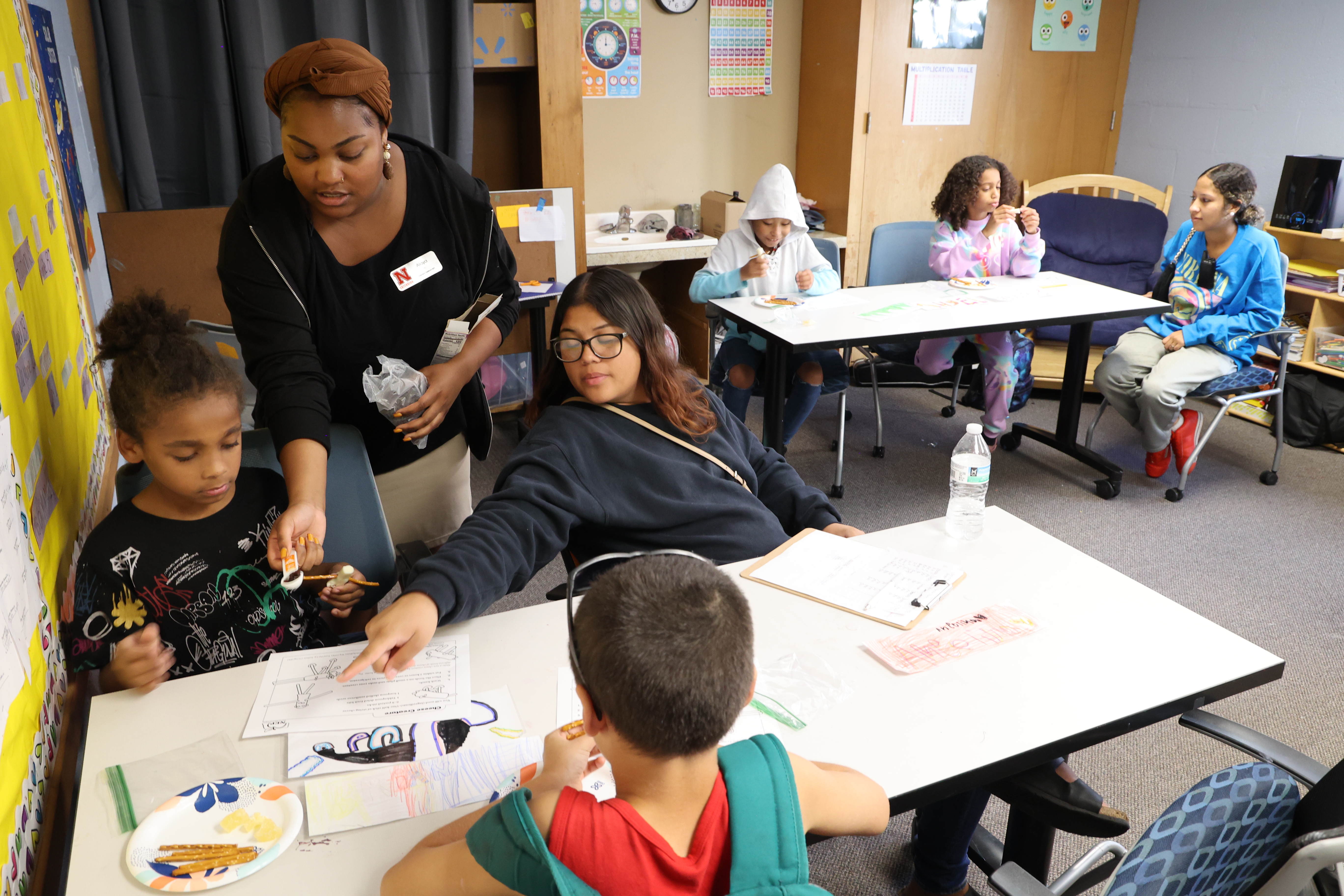
Editor’s Note: At the time of publication, Congress has voted to eliminate federal funding for the Supplemental Nutrition Assistance Program-Education (SNAP-Ed). As a result, some of the services described in this article may no longer be available to Lancaster County residents in the near future. This decision marks a significant shift in the landscape of community-based nutrition education and public health support. The impact of these changes on our local communities will continue to unfold.
By Emily Gratopp, MS, PCC, ACTC, Extension Educator in Lancaster County
In Lancaster County, a team of nutrition educators is laying the foundation for lifelong health — one meal, one lesson and one trusted relationship at a time. At the core of this work is a dynamic partnership between two federally funded programs: the Expanded Food and Nutrition Education Program (EFNEP) and the Supplemental Nutrition Assistance Program-Education (SNAP-Ed). Together, they address both sides of the equation — education and access. This dual approach ensures that limited-resource families are not only taught how to make healthier choices, but are also supported in accessing the resources to do so.
Expanded Food and Nutrition Education Program (EFNEP)
EFNEP, established in 1969, is the oldest federal nutrition education program. Its community-based, peer-education model focuses on parents and caregivers of young children. In Lancaster County, EFNEP reaches 200–250 adult caregivers each year with a series of 6–20 relationship-centered education sessions in multiple languages. Through trusted relationships, participants gain skills in meal planning, food budgeting, label reading and physical activity.
SUPPLEMENTAL NUTRITION ASSISTANCE PROGRAM-EDUCATION (SNAP-ED)
SNAP-Ed, launched around 30 years ago, serves individuals eligible for SNAP/EBT. It combines direct education with efforts to change policies and systems that shape the environments where people live, learn, work and play. In 2024, Nebraska SNAP-Ed reached over 20,000 individuals and supported 51 policy and system changes to expand access to healthy foods.
EFNEP/SNAP-ED PARTNERSHIP
The EFNEP and SNAP-Ed partnership allows for serving individuals across the lifespan. While EFNEP centers on caregivers of young children, SNAP-Ed reaches people of all ages. Together, they ensure nutrition education is accessible across life stages and settings.
One participant shared, “Before, I didn’t know what a food label was. Now, when I buy any product, the first thing I do is check the label.” Another said, “I look forward to Fridays to learn new information and try new recipes for my children.” A parent whose child was engaged in a nutrition education series said, “Our kid now makes sure there is water and milk at meals. We take daily walks and eat family meals together now.”
SNAP-ED INITIATIVES
SNAP-Ed supports national, statewide and local level initiatives like Double Up Food Bucks (DUFB), which offers a dollar-for-dollar match for SNAP users for fresh produce and Growing Together Nebraska, which supports community gardens that yield nearly 2,000 pounds of produce annually for Lincoln food pantries. SNAP-Ed educators offer on-site education and food tastings at pantry distributions and youth garden programs, helping families try and adopt new healthy foods.
SNAP-Ed also implements Nutrition and Physical Activity Self-Assessment for Child Care (Go NAPSACC), which helps child care providers create policies that promote lifelong wellness. SNAP-Ed works with 8–10 centers a year in Lincoln to increase fruits and vegetables, reduce screen time and enhance physical activity and outdoor play.
A long-standing collaboration between Nebraska Extension and Lincoln Public Schools (LPS) ensures schools integrate nutrition into their core health curriculum. SNAP-Ed provides Nutrition School Enrichment Kits and guest presentations focused on food choices, hand washing and movement to all 18 Title I schools (schools with higher rates of children with limited resources) in the LPS system.
COLLABORATIONS WITH OTHER ORGANIZATIONS
The strength of EFNEP and SNAP-Ed in Lincoln lies not only in their strengths-based partnership, but in their collaboration with other organizations as well. Together known as the Nutrition Education Program (NEP), EFNEP and SNAP-Ed are woven into the fabric of the community. Their reach is amplified through partnerships with food pantries, schools, shelters, early childhood programs and senior centers. These collaborations create wraparound support and help reduce barriers to participation.
Ultimately, these programs don’t just teach about food — they build health, trust and self-efficacy. They help shape the local food system and public health infrastructure while focusing on equity and access. Nutrition security doesn’t happen in isolation — it takes partnership, collaboration and community. Together, EFNEP and SNAP-Ed are helping Lincoln thrive, one relationship at a time.